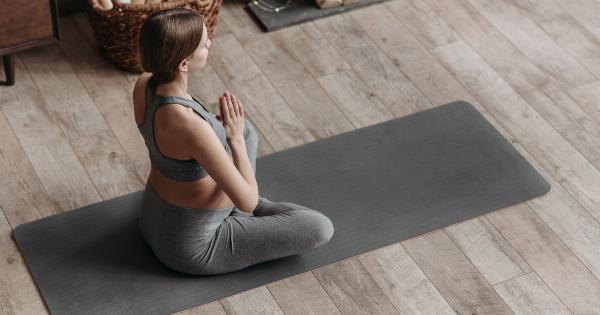Being active during pregnancy can bring numerous benefits for both you and your baby. However, it’s important to exercise safely and make sure you’re taking into account the changes happening in your body.
In this Q&A, we will address some common questions about staying fit during pregnancy.
1. Is it safe to exercise during pregnancy?
Yes, in most cases it is safe to exercise during pregnancy. However, it’s important to consult with your healthcare provider before starting or continuing an exercise routine.
They can assess your individual situation and provide advice tailored to your needs.
2. What are the benefits of exercising during pregnancy?
Regular exercise during pregnancy has several benefits, including:.
- Improved mood and reduced risk of pregnancy-related depression
- Increased stamina and strength, which can help during labor and delivery
- Better sleep quality
- Reduced discomfort and pain, such as backaches and swelling
- Improved circulation
- Prevention or management of gestational diabetes
- Maintaining a healthy weight gain during pregnancy
3. What exercises are safe during pregnancy?
Generally, low-impact exercises that are gentle on joints and minimize the risk of falls or injuries are recommended during pregnancy. Some safe exercises include:.
- Walking
- Swimming
- Prenatal yoga
- Pilates
- Stationary cycling
- Low-impact aerobics
4. Are there any exercises to avoid during pregnancy?
While exercise is generally beneficial during pregnancy, there are some activities you should avoid, such as:.
- High-impact sports or activities that increase the risk of falls
- Contact sports that may cause abdominal trauma
- Activities that involve lying flat on your back after the first trimester
- Exercises that put excessive strain on your joints or involve heavy weights
5. How often and for how long should I exercise?
It’s recommended to aim for at least 150 minutes of moderate-intensity exercise spread throughout the week. You can divide this time into shorter sessions of 10-15 minutes and gradually increase the duration as you feel comfortable.
Listen to your body and take breaks when needed.
6. Can I start a new exercise routine if I wasn’t active prior to pregnancy?
Yes, but it’s important to start slowly and gradually increase the intensity and duration of your workouts.
It’s also advisable to seek guidance from a healthcare provider or a prenatal fitness specialist to ensure you’re following safe exercises for pregnancy.
7. How do I know if I’m exercising too intensely or experiencing any warning signs?
Pay attention to your body and watch out for warning signs such as dizziness, shortness of breath, chest pain, vaginal bleeding, or contractions. If you experience any of these symptoms, stop exercising and seek medical advice.
8. Are there any modifications I should make as my pregnancy progresses?
As your pregnancy progresses, your body undergoes various changes. It’s important to adapt your exercise routine accordingly. Some modifications you may need to make include:.
- Avoiding exercises that put pressure on your abdomen, such as crunches
- Using larger and more supportive shoes
- Wearing a supportive bra
- Using a wider stance for better balance
- Adjusting the intensity and duration of your workouts
9. Can I continue exercising if I have pregnancy complications?
This depends on the nature and severity of the complications. Some conditions may require you to avoid exercise or modify your routine, while others may allow for modified physical activity.
It’s crucial to consult your healthcare provider and follow their recommendations.
10. What else should I keep in mind when exercising during pregnancy?
Here are a few additional tips to consider:.
























